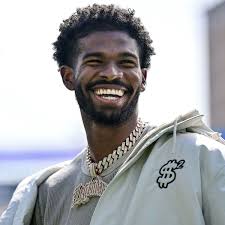
Introduction
Deion Sanders, a two-time Super Bowl champion and Hall of Fame cornerback, has become a significant force in college football as the head coach at Jackson State University. His rise in the coaching ranks is not just significant for the school or its players, but also marks a critical shift in the college football landscape, bringing attention to historically black colleges and universities (HBCUs).
Sanders Takes the Helm at Jackson State
In September 2020, Sanders was named the head coach of Jackson State, stepping into a role that carries high expectations given his celebrity status in the sports world. The move was aimed at elevating the university’s football program and drawing attention to HBCUs amidst calls for increased support and investment in these institutions. Sanders immediately embraced the challenge, recruiting blue-chip athletes and infusing energy into the program.
Impact and Success
Under Sanders’ leadership, Jackson State experienced a remarkable turnaround. The 2021 season saw the Tigers achieving a 11-1 record, their best in over a decade, and winning the Southwestern Athletic Conference (SWAC) championship. Sanders’ coaching style, combined with his charisma, has not only drawn talented players but has also galvanized the community and alumni around the program.
Furthermore, his ability to secure funding and sponsorships has helped enhance facilities and resources at Jackson State, which have long been underfunded compared to larger programs. Sanders’ influence extends beyond football; he has pushed for broader conversations about the role of HBCUs in American higher education and sports.
Conclusion
Deion Sanders’ venture into college football coaching has broader implications for the future of HBCUs, as he elevates the profile of its athletic programs and encourages more African American athletes to consider these institutions. His tenure is being closely watched, and many believe that his innovative approach could lead to sustained success, potentially influencing future generations of athletes and coaches. With continued support and investment, Sanders has the potential to reshape narratives around HBCUs, making them national contenders and respected programs in collegiate sports.



